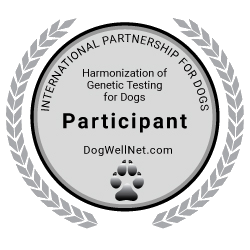Hypertrophic cardiomyopathy (HCM4)
In addition to the both already known genetic variants in the breeds Maine Coon and Ragdoll, a...lisää
Disease
Hypertrophic cardiomyopathy (HCM) is the most common cardiac disease identified in domestic cats. HCM is characterised by an increased left ventricular mass due to an increase in wall thickness of the heart, with papillary muscle hypertrophy and systolic anterior motion of the Mitral valves. Subsequently, hypertrophy of the left heart chamber results in cardiac weakness and ultimately in heart failure. Echocardiographic examination has so far been the only diagnostic tool for this disease. However, it can only identify affected cats with some years of age, when they already present first symptoms of HCM.
Death by HCM can occur via three mechanisms: (i) sudden cardiac death with arrhythmia and ventricular fibrillation, (ii) heart failure with tachycardia, increased respiration, shortness of breath, pulmonary oedema and pleural effusion or (iii) thrombus formation.
In addition to the both already known genetic variants in the breeds Maine Coon and Ragdoll, a variant of the ALMS1 gene has been found to be associated with HCM in the breed Sphynx. In general, the onset as well as the severity of HCM are highly variable. HCM in the breed Sphynx could be diagosed between the age of 1-14 years. Since not all genetically affected Sphynx cats show symptoms in the course of their lifetime, the described variant is suspected to have incomplete penetrance. It is still unknown if the risk of developing the disease is higher for homozygote affected cats (HCM/HCM) than for heterozygote cats (N/HCM). Moreover, it seems to be likely that there is at least one more genetic variant that causes HCM in this breed.
Death by HCM can occur via three mechanisms: (i) sudden cardiac death with arrhythmia and ventricular fibrillation, (ii) heart failure with tachycardia, increased respiration, shortness of breath, pulmonary oedema and pleural effusion or (iii) thrombus formation.
In addition to the both already known genetic variants in the breeds Maine Coon and Ragdoll, a variant of the ALMS1 gene has been found to be associated with HCM in the breed Sphynx. In general, the onset as well as the severity of HCM are highly variable. HCM in the breed Sphynx could be diagosed between the age of 1-14 years. Since not all genetically affected Sphynx cats show symptoms in the course of their lifetime, the described variant is suspected to have incomplete penetrance. It is still unknown if the risk of developing the disease is higher for homozygote affected cats (HCM/HCM) than for heterozygote cats (N/HCM). Moreover, it seems to be likely that there is at least one more genetic variant that causes HCM in this breed.
Breed
Sphynx
Heredity
autosomal dominant with variable penetrance
Test duration
3-5 days after arrival of the sample in the lab (in case of sequencing 1-2 weeks)


